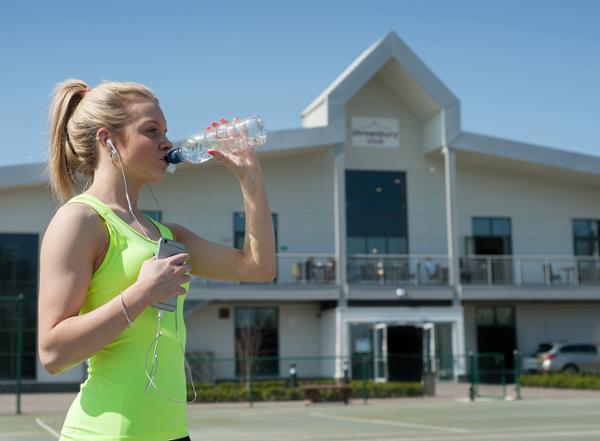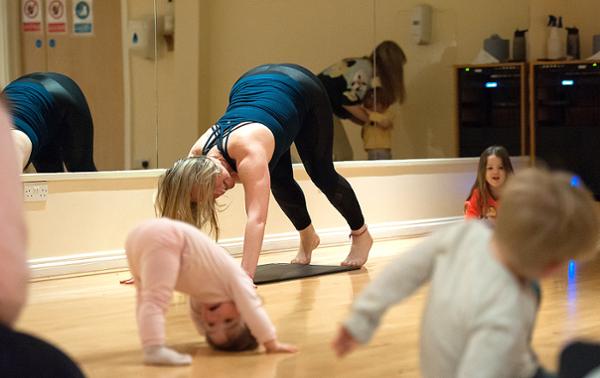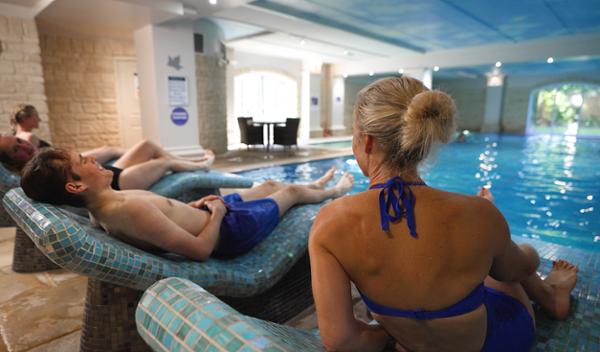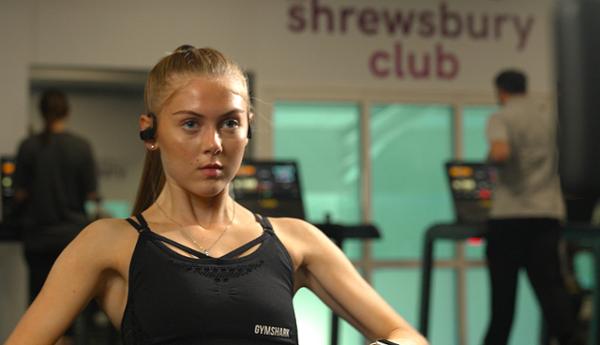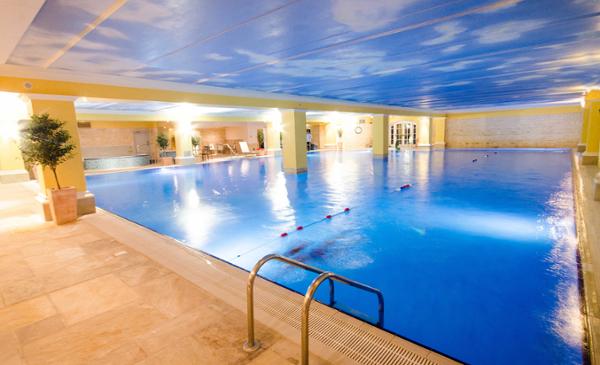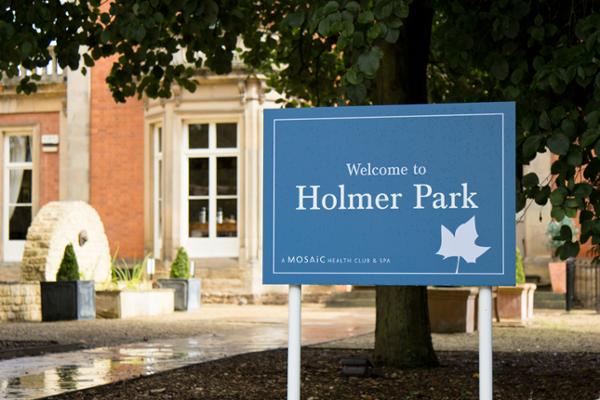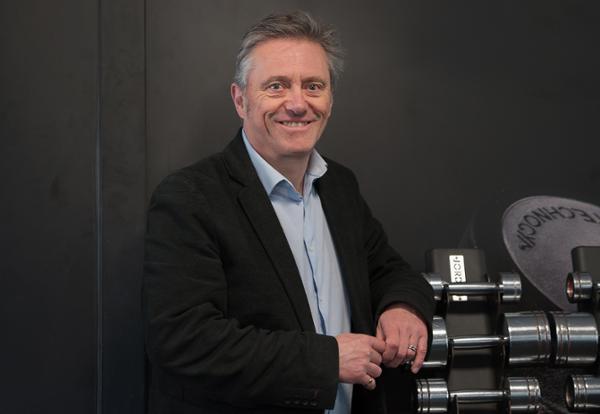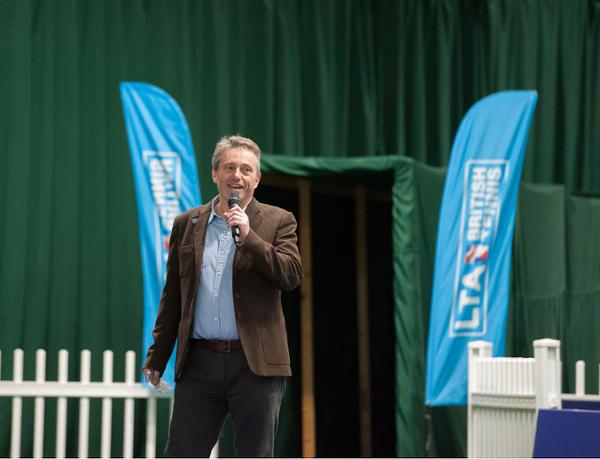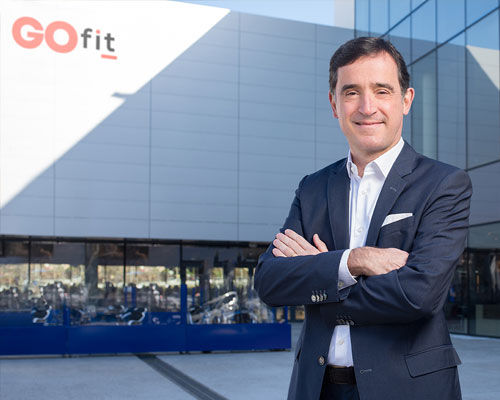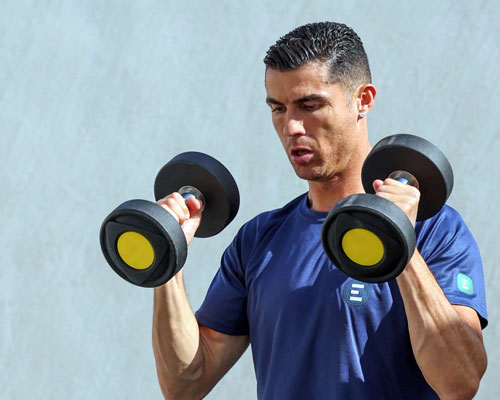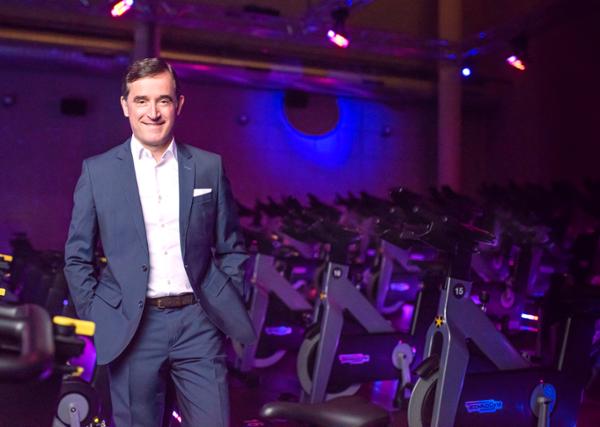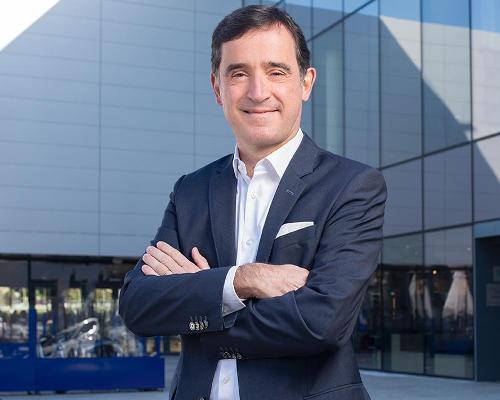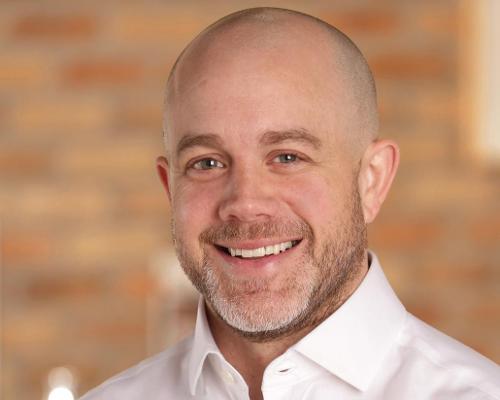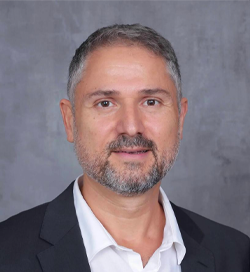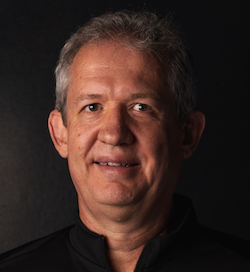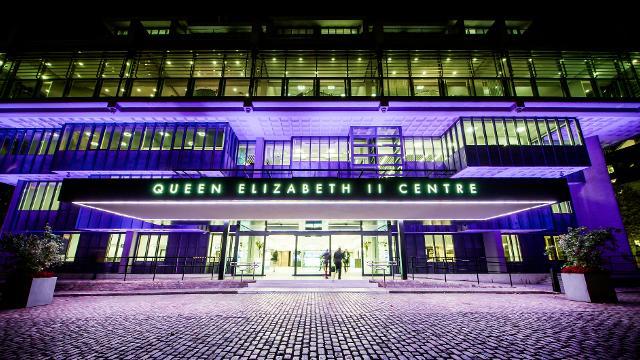features
Interview: Dave Courteen
The fitness sector has an unprecedented opportunity to become a credible partner in ensuring the health and wellbeing of the nation, says Mosaic Group MD and new chair of the UK Active Membership Council. He talks to Kate Cracknell
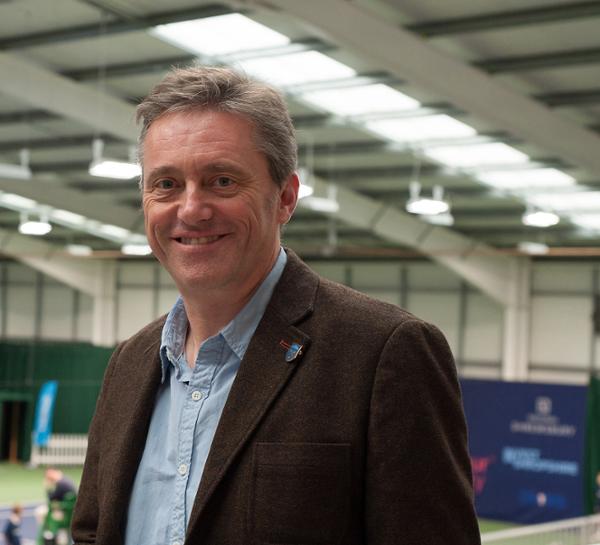
The last time HCM sat down with the industry legend that is Dave Courteen was – quite incredibly – 10 years ago.
At that point, Mosaic – the business he originally co-founded as a contract management company under the Fitness Express and Imagine Spa brands – had just ventured into owning clubs for the first time, with the acquisition of The Shrewsbury Club.
In that interview – which you can read at www.hcmmag.com/Courteen2012, on page 30 – Courteen spoke passionately about creating a people-led, locally-focused community as a USP for the club. Yet he ended the interview with his trademark honesty, saying: “But talk is cheap. Plans are easy. What I hope is that, if you were to interview me again in five years’ time, I’d be able to talk just as enthusiastically about all the things we’ve done, rather than all the things we hope to do.”
Well, it’s taken us 10 years rather than five, but nevertheless it’s a perfect time to check in, as Mosaic celebrates its 35th birthday this month and Courteen steps into the high-profile role of chair of the UK Active Membership Council.
What news from The Shrewsbury Club Dave?
We owned the club for five years with venture capital firm Downing Corporate Finance, and in that same period also bought Holmer Park – a health club and day spa just down the road in Hereford.
At that point, Downing wanted to pause and see how it all worked out, but as a result we didn’t spend enough money on Shrewsbury, which we’d bought out of administration. The way I describe it, the club survived but didn’t thrive for those first five years. It worked well, the members loved it, but it didn’t sparkle, and when you have a budget gym round the corner charging £15 a month and you’re charging £60, you need it to. You need to demonstrate a bigger difference than slightly better facilities.
So in 2017, we bought back the business with the support of a high net worth individual. It was a real turning point. We spent the remaining money necessary to refurbish and upgrade Shrewsbury – around £1m – and in the process completely rejigged the offering to make the club very family-oriented.
We decided to give free membership to children under the age of 16, which felt quite brave at the time: the club had about 2,000 members, of which around 250 were kids, so we lost about £25,000 a year in junior membership.
However, my rationale was that children were now only able to join with an adult and we needed just 80 more adult memberships off the back of the ‘kids go free’ offer to match previous revenues. Beyond that, I believed it was a compelling offer that would grow the club – and so it proved. We now have 5,500 members – 3,250 adults and 1,250 kids, plus a waiting list for juniors – and the club has been a great success.
It’s been a real lesson in understanding where you could sit in the marketplace, how you could be different, then executing and communicating that really well. And that, of course, relies on great people, which we’re fortunate to have at Shrewsbury in the shape of strong management and hard-working, friendly teams across every department.
The Shrewsbury Club now offers 35 activities a week for kids to join in for free, a big café/bar hub, a soft play area, and we’re about to build a day nursery and a second pool: one for families and another for members to swim lengths. It means families can come in, do their various different activities, then meet up in our hub afterwards – and that hub has never been busier.
How did you fare during the lockdowns?
It was frustrating in many respects. We’d had a year of strong growth at Shrewsbury post-refurbishment, with January and February 2020 just fantastic months for us, and then in March we were shut.
Looking at it positively, had the pandemic arrived 18 months earlier it would have been very difficult for The Shrewsbury Club to survive. We had at least got ourselves into a position where we were able to cope with that long period of closures. It wasn’t particularly pleasant and it certainly ate into our finances, but at least we were able to get through it.
And now, coming out the other side, both Shrewsbury and Holmer Park have recovered really, really well. We re-opened just 25 per cent down on our pre-COVID membership numbers, compared to the industry norm of around 30–35 per cent, and by September 2021 we were back to where we were pre-pandemic, which was well ahead of where we were expecting to be.
I think that’s partly because we worked really hard at staying in touch with our members during lockdown, to make them feel there was still some sense of community. We did do online classes, of course, but we also wrote to our members a couple of times a month, just chatting, telling them what the staff were up to, trying to sound positive and encouraging.
We also created some little TV-style series of online member phone-in and chats. These weren’t necessarily about health, although obviously there was a bit of that. We were just chatting generally about some of the issues people had at the time: keeping kids entertained, getting them to do their schoolwork, trying to stay positive in lockdown and so on.
We’ve enjoyed some incredible sales figures at both Shrewsbury and Holmer Park since we re-opened, too, which I’m sure is partly down to our members using social media to talk about what their club did for them during lockdowns.
What about contract management?
The contract management side of our business has been heavily affected and is taking a little longer to recover than our standalone health clubs; most of our contract management sites are attached to hotels and hotels have had it really tough. We’ve won lots of new contracts, though: Portsmouth Football Club, for example, and some more hotels with health clubs and spas that we will operate.
We’ve also continued to work really hard on developing our staff, still viewing our contract management clubs as the perfect places to train people up and get them qualified, so we can promote from within across our whole business. That’s been a core value for us throughout our 35 years: we know it’s our people who make our clubs successful.
It's been a tough couple of years, but contract management is what we grew up on as a business and remains a core part of what we do.
Tell us more about Holmer Park.
Holmer Park is a really successful and very beautiful club, with a totally different offering from Shrewsbury. It’s adult-only, with around 2,500 members, and has a huge day spa.
We bought it in 2012 from an owner who wanted to retire, and we took over a very successful, very good, well-functioning health club with a few treatment rooms on the side. What we’ve since done is turn it into a full day spa, growing the business that way: the spa now turns over close to £700,000 a year, regularly seeing 100 visitors a day.
Day spa guests enjoy a fabulous thermal suite – huge pool, two steamrooms, sauna, foot spas, vitality pool, hydrotherapy spa pools, ice fountain, hot showers and so on – and relaxation areas, as well as a treatment. Meanwhile, our members have access to the thermal suite included in their membership and also get discounts on treatments, including our rasul mud chamber.
It has, without a doubt, been our most successful owned club, sitting right in the sweet spot of what we’ve done at Mosaic over the years – namely, operating a high-quality spa alongside a high-quality health club. With a great team and a great manager, we’ve been able to build up the spa while at the same time growing the health club membership. Every time we’ve spent money on Holmer Park – the group exercise studio we built there recently, for example – it’s worked really well and we’ve got a return.
For many of our members, Holmer Park is a lifestyle: they come and do a workout, maybe use the pool, then chill out in the café. With working patterns having changed so much, we’re also seeing more people using the club as a base to do some work, breaking to do a class and have a bit of food before getting back to work again. They like the atmosphere, they like to be around people, and generally we’ve made sure our café/bars are really good.
We believe café/bars can’t be an afterthought in a club. The high street is full of high-quality artisan coffee shops. If you want people to enjoy their post-workout coffee with you rather than heading elsewhere, you need to provide an experience that hits the mark. We’ve done that at both Shrewsbury and Holmer Park.
Are owned clubs the way forward for Mosaic?
We already have a third club, Riverhills, which came to us as an opportunity during lockdown. Located on the outskirts of Ipswich, it’s a very similar model to Holmer Park in that 50 per cent of its turnover will come from memberships and 50 per cent from day spa guests, so fits nicely into the Mosaic mould.
We completed the acquisition in June 2021 and will now invest in improving the facilities, putting in a rasul mud chamber, creating a larger coffee bar, upgrading the poolside and so on. It was already a pretty successful club, but we see opportunities to take it to the next level, plus it also spreads our risk across three sites rather than two.
Our focus will then be on getting the most out of our existing clubs and creating a more stable operation: we certainly aren’t aggressively wanting to go out and build a big portfolio. Nevertheless, if opportunities come along to add another club that fits what we’re trying to do, we’re keen to do that. I believe we have the resources in the business to run more clubs, and of course it brings economies of scale.
However, even as we grow, we will still not create a single-brand portfolio with commonalities across all sites. Each of our clubs is and will remain unique, operating under its own brand, and there will be no obvious signs that they all belong to the same company. We want all our clubs to be built with an affinity around a local community rather than around the ownership brand – and that’s where we are with Riverhills right now, trying to connect with as many local businesses and networks as we can, to integrate ourselves into the local community so we can become a really active member of that community.
What do you see as the long-term impact of COVID?
Sometimes, out of the darkest times comes your finest hour. By affecting the less active and less healthy far more than it did active people, COVID reinforced the value of exercise in a very powerful way. I think, in the long term, we will look back on this as an experience that was tough at the time, but that was ultimately good for the industry.
My other strong view relates to a commonly-held belief that clubs now have to have a digital offering – a hybrid model. I’ve never believed that. For me, what the pandemic has reinforced is that people want to be around people. Our classes, for example, have grown busier than any other aspect of our clubs – to the point that we’re building more studios at Shrewsbury – and it’s because members want to meet up, be in a community, work out with like-minded people. I believe that’s why clubs are so powerful, and that’s what we need to play on.
That doesn’t mean there isn’t a group of people who are very happy to have their Peloton and work out at home, but those people existed before lockdown and that’s fine. It doesn’t stop me passionately advocating the need for higher-end clubs in particular to be built on making members feel valued and connecting them with others, in-person. That’s what people want, and it’s a lesson our industry as a general rule still has to learn.
I also think there’s a learning for hotels coming out of this. Looking beyond our contract management sites to the sector as a whole, traditionally hotels have seen gyms and spas as a necessary evil – a box to tick while spending as little as possible. They’ve been seen as a marketing tool, a way to drive room occupancy, rather than potentially profitable departments in their own right.
However, as conferences and meetings continue to take place online and bookings remain low, hotels are beginning to ask if they might use their conference spaces in a better way – and they’re turning to wellness, and particularly day spa.
Some hotels will have local gym memberships too, but that’s a very hard market to compete in. Day spa, meanwhile, plays right into hotels’ hands, not least because they can cost-effectively do great food – an important part of the spa day experience – thanks to chefs already being on-site. Day spa is a huge opportunity for hotels to turn wellness into a profit centre. At Mosaic’s hotel-based spas, 95 per cent of guests are there to use the spa; only 5 per cent of spa visitors are hotel guests.
Let’s talk about your new role at UK Active.
UK Active demonstrated its power and value to the industry so much during the pandemic that I wanted to put my shoulder to the wheel to help the organisation continue to move forward. I therefore offered to step into the role of chair of the UK Active Membership Council, having previously been vice chair.
I can best sum up ukactive’s influence and achievements during the pandemic like this: at the end of the first lockdown, clubs were the last places to re-open because government viewed us as high-risk. By the end of the third lockdown – after huge efforts by UK Active to prove we weren’t high risk, but an important part of the solution – we were one of the first to re-open. Those extra eight, maybe 10 weeks of being open... they made a massive financial difference to my business, and I’m sure to lots of other businesses as well. That in itself will have paid for my membership to UK Active for easily the next 15–20 years.
I think there’s also now real clarity about what UK Active is. It’s built a reputation for data and industry insight, helping us understand the business and the industry we work in. It influences government. It guides our management of the risks that could affect the whole industry. And perhaps most importantly it encourages participation, with a bold ambition of getting 20 per cent of the population active by 2030.
I think we owe it to ourselves as an industry to really join together now and push the wellbeing and health agenda forward – and our role within it. I’m here to get my sleeves rolled up and get stuck in.
How does the Membership Council work?
The council now has 14 members from its original nine – reflecting the diversification of the industry – and it’s a strong, well-respected group of people.
Each member represents their own sector of the industry, from budget gyms to high-end operators, independents to boutique fitness, trusts to local authority-run centres to wider activity providers. As a council member, you’re there as a conduit to communicate what your specific sector is thinking to UK Active, then communicate back from UK Active to your sector.
We’re doing everything we can to ensure communication lines remain open in what is now a large and diverse organisation. For example, the UK Active Supplier Council chair attends Membership Council meetings, as do various UK Active team members including CEO Huw Edwards, and I attend the main UK Active board meetings in my capacity as Membership Council chair.
My role in the board meetings is to represent members’ views to the board, which now includes non-executive directors from sectors such as healthcare and education. With their broader perspectives and ability to influence government, it’s fantastic to have them on the board: we can gain knowledge from them and they can influence what we do. However, they don’t work in the sector day-to-day, so I very much see my role as ensuring the board hears UK Active members’ voices and doesn’t lose sight of what they want as it steers the organisation’s strategy and direction.
What’s next for our sector?
It comes back to what I said before about the pandemic giving people a powerful, visible demonstration of the value of exercise and living a healthy lifestyle.
When you have someone as influential and respected as the government’s Chief Medical Advisor Professor Chris Whitty saying there is no situation, no age and no condition where exercise is not a good thing… well, I think we’re three-quarters of the way there. People have had to sit up and listen.
But we must act on this opportunity now, while it’s fresh in people’s minds. We have to reinforce the importance of exercise and being active and highlight the variety of wonderful ways you can be active in this country.
We need to clearly communicate to those thinking about an active lifestyle, perhaps for the first time, what being active actually looks like – what it is they have to achieve – and how best they go about it.
If in the process we can get another five, maybe 10 per cent of the population to be active on a regular basis every week, that’s going to result in significant growth across our entire industry. A rising tide floats all boats.
But operators must be very clear in their messaging so people find their way to a club they’re likely to stick with.
If you’re a budget gym, for example, what you’re offering are fantastic facilities at a really affordable price; I’m fully aware that there are people who couldn’t afford to join my health and fitness clubs, for example.
Others will be looking for more community, ongoing support and staff engagement, and this is where we’re very strong.
The lesson for everybody is to be clear in communicating what it is you do and who you’re targeting – not trying to be all things to all people, which to an extent is perhaps what we’ve all done in the past. Provided we’re clear in our messaging, I believe we can be really successful at keeping people engaged with our clubs.
In the past, the press has always been full of ‘join a gym in January, leave in March’ type stories, but we now have a chance to move on from that. If we keep working hard and making inroads, I genuinely believe we have an opportunity to become credible partners in keeping the nation active and healthy, both physically and mentally.
The 14 members of UK Active’s new Membership Council are as follows, with names listed in alphabetical order:
Dave Courteen, MD, Mosaic Spa and Health Club Group (chair)
Andrew Denton, CEO, Outdoor Industries Association
Marc Diaper, CEO, Gymbox
Lisa Dodd-Mayne, Director of sport and active communities, University of Warwick
John Fletcher, MD, Northampton Leisure Trust
Sophie Lawler, CEO, Total Fitness
Lee Matthews, MD, Fitness First
David Monkhouse, Director, Leisure SK
Rebecca Passmore, UK MD, PureGym
Chris Symons, CEO, BH Live
Andrew Thompson, Chair, Anytime Fitness UK
Jean-Claude Vacassin, Director, The IFBA
Sarah Watts, CEO, Alliance Leisure
Dave Wright, Group CEO, Myzone Group
